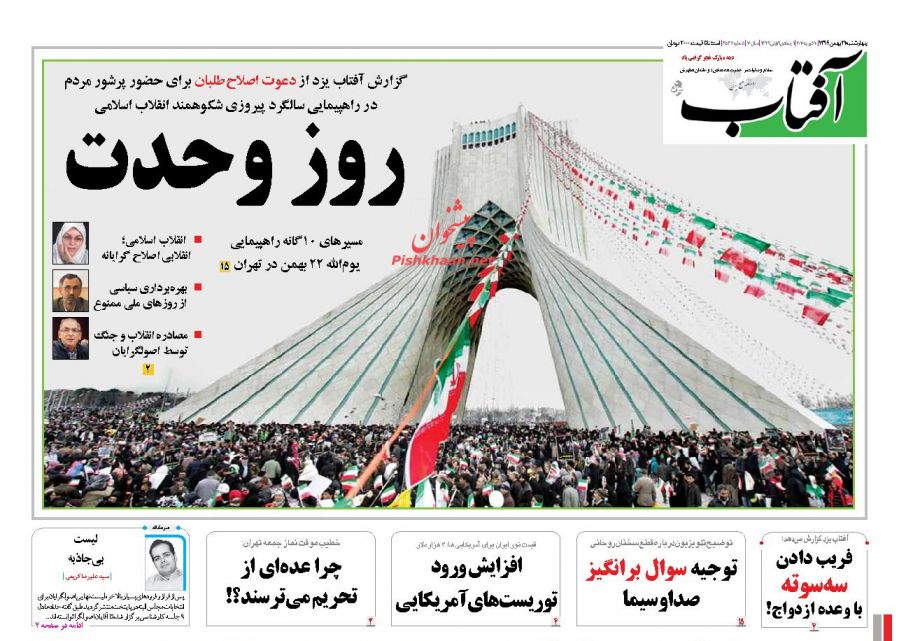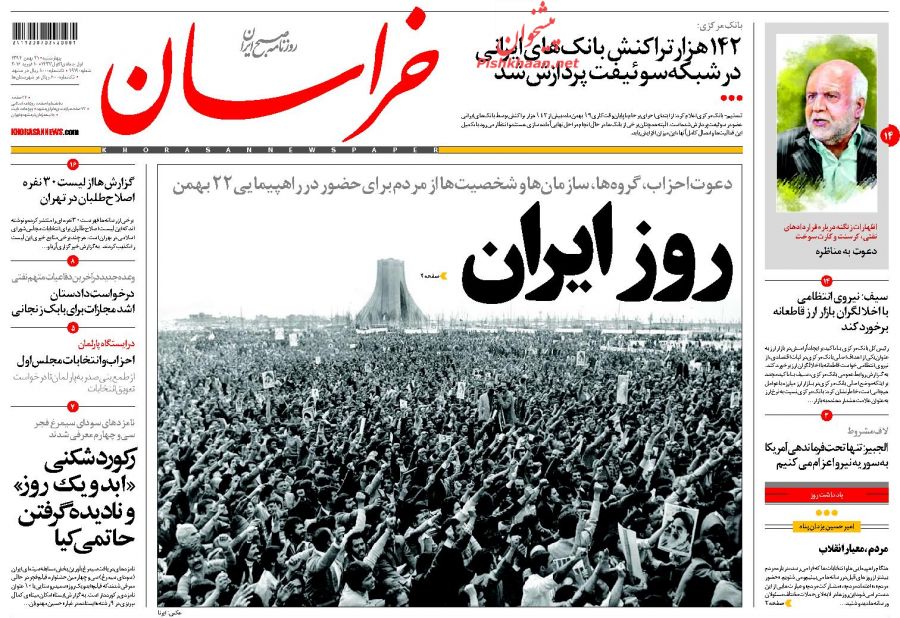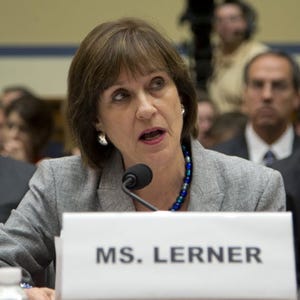Opposition Leader: U.S. Diplomacy Costs Syrian Lives
Bloomberg: In the days since the collapse of the Syria peace talks championed by U.S. Secretary of State John Kerry, the humanitarian catastrophe in northern Syria has grown, tens of thousands of new refugees were created, and the Russian- and Iranian-backed killing of civilians has increased. These are all consequences of the flawed U.S. strategy, according to the lead negotiator for the Syrian opposition.
Riyad Hijab was prime minister of Syria in 2012 under the dictator Bashar al-Assad; he became the highest-ranking defector from the regime when he switched sides and joined the rebels. He is now the leader of the High Negotiating Committee that represented the Syrian opposition at last week’s meetings in Geneva, which collapsed after two days. Kerry had pressured the Syrian opposition leaders to attend, even warning they could lose their U.S. funding if they boycotted. Hijab says that Kerry’s approach — to try to persuade Assad and Russia to negotiate while the offensive continues — has actually made things much worse.
“The administration is saying it is testing the good faith of the other side,” Hijab told me in a phone interview on Monday. “But when you are testing these things and it fails, the price that is being paid is horrendous death and the expansion of extremism and terrorism on the ground.”
Syrian forces backed by Russian air power are pressing an offensive against rebel groups in and around Aleppo, the nation’s largest city, that began before the scheduled peace talks. Kerry said Friday, “This has to stop.” He said he would know if the other parties, such as Russia, were “serious” about upholding United Nations Security Council resolutions on protecting civilians after a meeting later this week in Munich of the international group of countries supporting proxies in the Syrian civil war.
In the eyes of the Syrian opposition, Russia and Iran are making a mockery of the peace process, and Kerry’s reluctance to acknowledge this is putting them in deadly harm. It also creates more problems for America’s regional allies, aids the Islamic State and dims the prospects for future peace talks. “The failures of the negotiations end up lowering the credibility of the moderate opposition in front of the Syrian people,” said Hijab. “United States credibility is plummeting within the population of Syria but also in the region as a whole.”
This week, it is Syrians near Aleppo who are paying the price. Regime forces, with Russian support, are advancing toward the Turkish border, threatening to cut off opposition groups and civilians from their source of aid. At least 35,000 people have joined the flood of refugees since the collapse of the talks, ahead of what many anticipate will be another in a long line of starvation sieges the regime is perpetrating on cities. Hijab said there are now 18 cities under siege, three more than when the talks began. More here.
Syria, already a catastrophe, seems on the verge of an uncontrollable disaster
WaPo: Suddenly, after four years of brutal civil war, Syria this week became even more of an uncontrollable military, diplomatic and humanitarian disaster.
“We are not blind to what is happening,” Secretary of State John F. Kerry said Tuesday, as he prepared for a meeting in Munich of stakeholders from outside Syria. “We are all very, very aware of how critical this moment is.”
The Thursday gathering could well be the last gasp of a three-month, Kerry-orchestrated effort to bring together powerful countries on all sides of the conflict — from Russia and Iran on behalf of the government of Syrian President Bashar al-Assad, to the United States and its partners on the opposition side — to try and forge a political solution that would allow them all to focus their efforts on defeating the Islamic State.
What seemed possible even two weeks ago, however, now seems all but hopeless. Failure of planned peace negotiations could lead President Obama finally to a decision he has long resisted — whether to more fully arm and back rebel groups whose cohesion and commitment to a democratic and secular Syria he mistrusts.
In recent days, Russian bombardment of opposition forces north of Aleppo, a rebel stronghold, has severed opposition supply lines and threatens to allow government-aligned forces to encircle the city. In a letter sent to the Obama administration this week, Russia proposed to stop the bombing on March 1, allowing it to continue for another three weeks
The Russian blitz has allowed pro-government ground forces, mostly composed of Iranian-trained militias from Iraq, Iran and Lebanon’s Shiite Hezbollah, to push north to with 20 miles of the Turkish border. This is the same area where the United States and Turkey have planned to carve out an opposition-held zone to combat Islamic State forces approaching it from the east.
Tens of thousands of new refugees have fled Aleppo and its environs to the recently closed Turkish border. Mercy Corps, one of the few aid agencies in a position to help them, said Tuesday that its supplies will soon run out. For those who haven’t fled, the encirclement of Aleppo “would leave up to 300,000 people, still residing in the city, cut off from humanitarian aid unless cross-line access could be negotiated,” the United Nations said.
In Europe, where a flood of nearly a million migrants and refugees from the region, most of them Syrians, have already arrived, political and social tensions are threatening the foundation of European unity constructed over the past 70 years.
“There are fault lines emerging that we thought we had overcome,” said Peter Wittig, Germany’s ambassador to the United States, who described the situation as an existential threat to Europe.
“The United States has been slow to recognize this is a much bigger thing than anything else we’ve experienced since the beginning of the European Union,” Wittig said. “We didn’t see it earlier, we were totally unprepared. . . . We’re not blaming the United States. It takes time for this country to realize that it’s really that serious.”
Germany has taken in the bulk of the migrants and refugees, while some Eastern European members of the E.U. have closed their borders to them.
Negotiation track deridedU.S. ties have become strained with partners closer to the conflict. These allies fear the Obama administration has been blinded to the threat from Russia and Iran by its desire to believe they can be swayed by diplomatic reason and appeals to shared worries about expansion of the Islamic State.
One senior official from a close partner nation described the negotiation track as a farce. The official said that it was unrealistic to expect the opposition to come to the table when its forces are being decimated on the ground and civilians are being starved by Russian bombing and the government gains it has enabled, in violation of United Nations resolutions that Moscow agreed to in order to get the talks started. The official, who said that U.S. leadership is still essential if the war is to end, did not want to be identified by name or nationality in order to speak candidly.
Frontline Turkey, a NATO ally and member of the U.S.-led coalition against the Islamic State, has dithered over its priorities, concerned that a U.S. alliance with Syrian Kurds fighting against the militants will give advantage to Turkish Kurds who seek independence. Even as pro-government forces expand north from Aleppo, Kurdish fighters in Syria’s northwest corner are pushing into the same area.
Turkish President Recep Tayyip Erdogan has demanded that the United States choose between Turkey and the Syrian Kurdish Democratic Union Party. After State Department spokesman John Kirby said this week that the United States does not consider the Syrian Kurds to be terrorists while recognizing that Turkey does, the Ankara government called in U.S. Ambassador John R. Bass on Tuesday for a dressing-down.
Talks between the Syrian government and opposition were suspended before they began this month after rebel representatives said they would not sit at the table until the government provided humanitarian access to besieged areas and released women and children it is holding prisoner. The Munich meeting, originally scheduled to monitor progress in the negotiations, became a final effort to get them started.
Scorched-earth policyKerry has long sought a more muscular U.S. policy than Obama has allowed. But he also firmly believes that if negotiations can begin, Assad will eventually be forced from power, with Russian acquiescence in the face of the inevitable.
For the moment, Moscow seems more interested in adjusting the balance of power on the ground — where just months ago, the rebels were on the ascendant — to strengthen Assad’s position before entering talks about his future.
Near the Turkey-Syria border Tuesday, rebels said they fear they are being betrayed by the countries they thought were their allies — most notably the United States. Without significant new injections of arms and ammunition, they said, they will not survive the combined onslaught of intense Russian airstrikes and advances by pro-government ground forces.
“Russia is the second superpower in the world, and Russia is using all of its power against the rebels,” said Mohammed Adib, a political officer with Jabhat Shamiya, the main rebel group fighting in northern Aleppo province. “They’re using a scorched-earth policy, and they don’t care what the international community says.”
“The problem is the friends of the regime are really good friends and give lots of support, whereas our friends sometimes give support and sometimes not,” he said.
While they don’t expect they will receive anti-aircraft missiles, which would have a major impact on the balance of power, rebels said they still hope to receive upgraded weapons, including new-generation models of the TOW missiles that have proved effective at taking out the Syrian government’s aging battle tanks, though these are no match for newly supplied Russian T-90 tanks.
If the rebel fighters cannot rebound, Adib and other rebel spokesmen said, there is a risk that opposition fighters will join more radical organizations, including the Islamic State. “People will not surrender to [Assad] under any circumstances,” said Khaled Shihabeddine, a political adviser to the Noureddin al-Zinki rebel group. “If things stay as they are, with no support and no one stopping Russia, the rebels will be pushed into a corner and . . . all possibilities will be open.”





